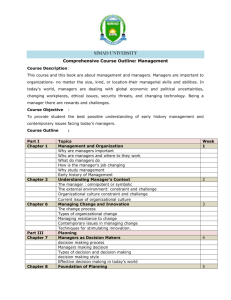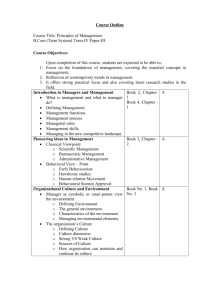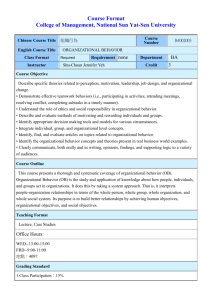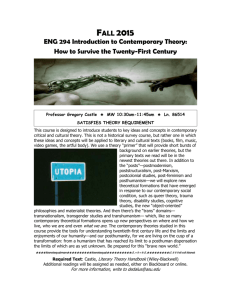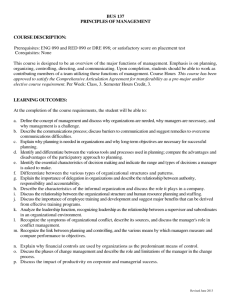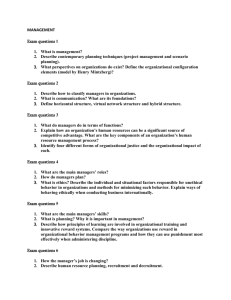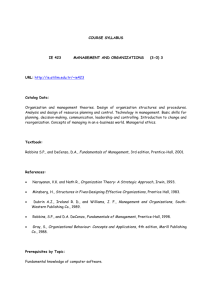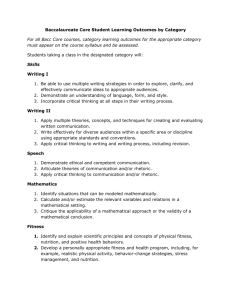Principles of Management
advertisement
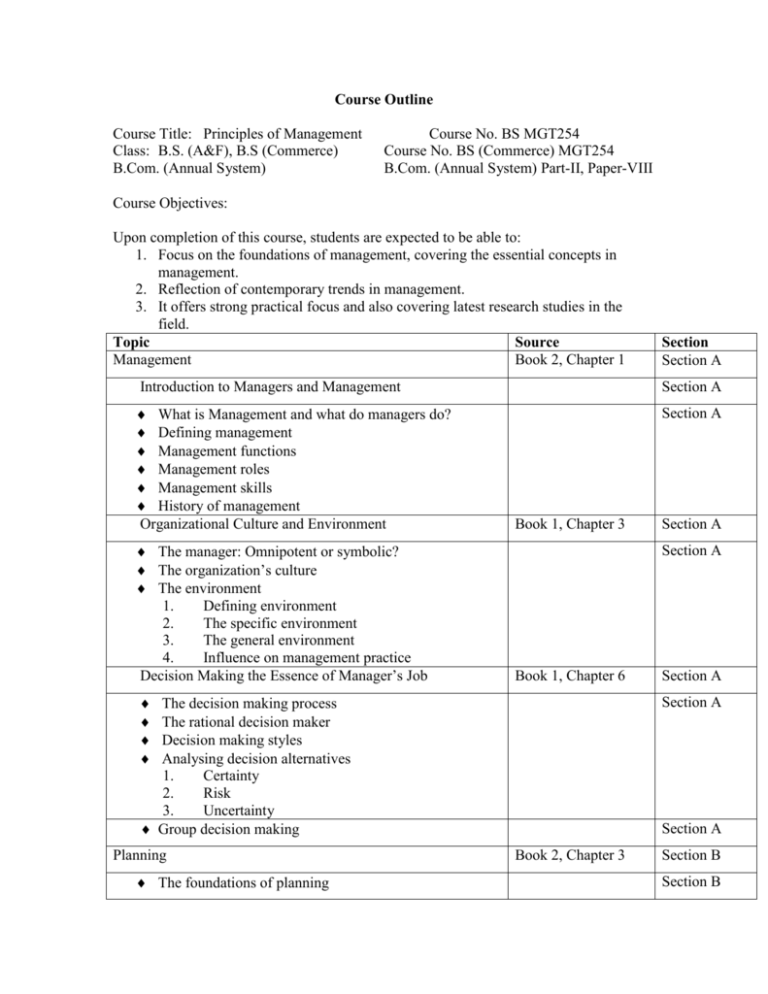
Course Outline Course Title: Principles of Management Class: B.S. (A&F), B.S (Commerce) B.Com. (Annual System) Course No. BS MGT254 Course No. BS (Commerce) MGT254 B.Com. (Annual System) Part-II, Paper-VIII Course Objectives: Upon completion of this course, students are expected to be able to: 1. Focus on the foundations of management, covering the essential concepts in management. 2. Reflection of contemporary trends in management. 3. It offers strong practical focus and also covering latest research studies in the field. Topic Source Management Book 2, Chapter 1 Section Section A Introduction to Managers and Management Section A What is Management and what do managers do? Defining management Management functions Management roles Management skills History of management Organizational Culture and Environment Section A The manager: Omnipotent or symbolic? The organization’s culture The environment 1. Defining environment 2. The specific environment 3. The general environment 4. Influence on management practice Decision Making the Essence of Manager’s Job Book 1, Chapter 3 Section A Book 1, Chapter 6 The foundations of planning Section A Section A The decision making process The rational decision maker Decision making styles Analysing decision alternatives 1. Certainty 2. Risk 3. Uncertainty Group decision making Planning Section A Section A Book 2, Chapter 3 Section B Section B The definition of planning Purposes of planning Types of plans Contingency factors on planning Objectives: The foundation for planning 1. Multiplicity of objectives 2. Real versus stated objectives 3. Traditional objective setting 4. Management by objectives Organization Structure and Design Defining organization structure and design Building the vertical dimension of organizations Building the horizontal dimension of organizations The contingency approach to organization design Application of organization design Motivation Motivating employees What is motivation? Contemporary approaches to motivation Contemporary issues in motivation From theory to practice: suggestions for motivating employees Leadership Managers verses leaders Trait theories Behavioral theories Contingency theories Emerging approaches to leadership Contemporary issues in leadership Communication Communication and interpersonal skills Understanding communication Communication styles of men and women Feedback skills Delegation skills’ Conflict management skills Negotiation skills A)Controlling Foundations of control 1. What is control? 2. The importance of control 3. The control process 4. Types of control 5. Qualities of effective control Book 1, Chapter 10 Section B Section B Book 2, Chapter 10 Section B Book 2, Chapter 11 Section B Book 2, Chapter 12 Section B Book 2, Chapter 13 Section B 6. The dysfunctional side of control 7. Ethical issues in control Controlling tools and techniques 1. Information controls 2. Financial controls 3. Operations controls 4. Behavioral controls Human Resource Management The Personnel Function Terminology Who does personnel work? Staff role of the personnel department Personnel (Human Resource) functions Job Design and Analysis Job design Job information and personnel management Analyzing jobs-obtaining job information Functional job analysis Administration of the job analysis program Human Resource Planning Reasons for human resource planning The planning process Recruitment and Selections/Testing and Interview Labor market considerations Recruitment and selection policy issues The employment process Sources of people The selection process The selection procedure Testing: Interview Miscellaneous Union and management Compensation administration Health and safety Section B Book 3, Chapter 1&2 Section C Section C Book 3, Chapter 6&7 Section C Book 3, Chapter 5 Section C Book 3, Chapter 6&7 Section C Book 3, Chapter 15,17&18 Section C Recommended Texts 1. Robbins, S.P. & Coulter, Mary (1996) Management; Prentice Hall. 2. Robbins, S.P. & Decenzo, David A. (2001) Fundamentals of Management, Pearson. 3. Decenzo, David A. & Robbins, S.P. (1996) Human Resource Management. John Wiley.
